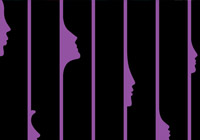MOST OF THE DEBATE over the immigration program known as the Deferred Action for Childhood Arrivals, or DACA, involves abstract policy questions. Does the program reward illegal behavior or protect from harm those who have done nothing wrong themselves? Do the children brought to this country at a young age by their parents deserve protection or ejection from the United States? How much deference should judges or legislators allow the president in setting immigration priorities? Those are real and serious questions, debated by legal scholars and politicians. It is not my intention to discount them; however, they are not the questions that I confront.
My parents brought me to the United States when I was 4 months old due to the violent, political turmoil they faced in my war-torn birthplace. Although they entered the country with permission, they stayed in the U.S. longer than they were permitted to do so and raised me here. The United States is the only country where I have ever lived. But I’ve grown up here in a kind of half-life, able to participate in certain activities but not others, alive for family and friends, but cut off from services and opportunities that others take for granted. It is life layered atop civil death.
Growing up, my friends studied for their driving exams and, once they proved their ability, were issued permits and then licenses. Their driving licenses granted them the freedom of mobility: They were liberated from parents and siblings. I was not. As we grew older, my friends opened bank accounts and began to save money for college or other expenses. I could not. Nor could I obtain a credit card. In the simplest, millennial terms, this meant that I could not retain a monthly Apple Music subscription, order Ubers or Postmates or engage in any form of online shopping. Most people probably do not consider the connection between immigration status and music access. I do.
Like many of my classmates, I worked hard in school. I spent 18 years attending public school, graduating with a 3.8 high school G.P.A., only to be denied even the chance to apply for federal financial aid and public loans for my higher educational expenses. Most jobs were unavailable to me, too, as I could not produce evidence of employment authorization. Some of those who attack immigrants question their willingness to work and pay taxes; I wanted to do both but was prevented from doing so by a status I had no part in creating. Nor could I fully participate in other aspects of young life: As my friends celebrated their 21st birthdays in places reserved for adults, I could not go to those nightclubs or even purchase a glass of wine.
I cannot travel. If I would dare to leave the country, I would be unable to return home. Immigration officers of the U.S. Department of Homeland Security would be more than eager to dispose of me in a foreign land. The ability to explore is a privilege reserved for the documented.
Some of that lightened a few years ago when President Obama implemented the DACA program. Under its protections, I was able to obtain a state identification card, learn how to drive, experience the Hollywood and DTLA nightlife and get a job. It was a reprieve, a resurrection from my civil death. I attended community college and then was admitted to UCLA, though my move to that world-renowned university was hindered by discovering two weeks before I began that my state financial aid grants had been denied due to technicalities related to my complex legal status. The UC system safeguarded me and filled in the gap with private grants and loans. I graduated a few months ago, and am prepared to join the workforce, pay my taxes and reach my full intellectual potential in this country.
But the protections of DACA were temporary and fragile. The Trump Administration has rejected DACA, and a court decision could take away everything that I have spent my whole life dreaming of and working to attain. The effects on me and my others are not abstract; they are real and tangible. As the Supreme Court considers questions of presidential authority, separation of powers, history and precedent, it won’t take into account what this means for my iTunes account or, more important, my post-graduation career. But I will. With one stroke of a tie-breaking justice’s pen, I could lose everything. I would be forced back into the grave with yet another civil death.























